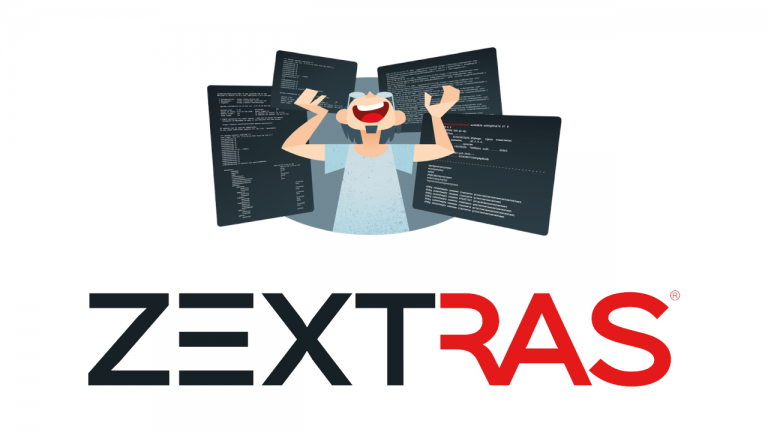Slack is being blocked! Are we moving to Rocket.Chat?

In the near future, users in Russia will be faced with the complete inability to use the popular corporate messenger Slack. Service representatives announced a complete blocking everyone accounts of Russian users due to the entry into force of new large-scale American sanctions.
Slack, one of the most famous and widely used corporate messaging apps in the world, is forced to comply with the US initiative, despite the possible negative consequences for its Russian audience. However, even using a VPN cannot guarantee bypassing the blocking.
Order a virtual or dedicated server with pre-installed corporate messenger Rocket.Chat! You can choose a server in a data center in Russia or in data centers in Europe, the USA or Turkey. Payment in rubles against an invoice from a Russian company.
Slack Alternatives
Although Slack blocked corporate accounts of Russian companies back in 2022, this did not affect individual users in the jurisdiction of the Russian Federation. Now, in the form of an ultimatum, Russian users are given 30 days to search for alternatives.
Slack's main competitor in the corporate messenger market is also an American service – Microsoft Teams. However, Microsoft decided to restrict Russians’ access to its cloud services back in the spring of this year, and those Russian companies whose access was not ultimately restricted will obviously be disabled due to new sanctions. Microsoft's position regarding individuals is still unclear.
In the open source world, Slack is considered an alternative Mattermost And Rocket.Chat. We at HOSTKEY have been using the latter for several years. Here are its advantages:
Open source. The community version, although it has some restrictions, is distributed freely, including for commercial use.
Installation on your own servers or cloud hosting.
Security and privacy, including two-factor authentication, end-to-end encryption and ISO-27001 compliance.
Team functions that offer many possibilities for corporate work: the creation of separate channels for projects or thematic discussions and the ability to assign different roles and access rights to information.
Customizable work statuses: Users can set statuses and profiles, making it more clear how available they are to communicate.
Integrations with other applications, offering a wide range of connections to services and platforms to improve functionality and performance.
Possibility of storing data on the hosting server or in third-party storage at the user’s choice.
Support for web and mobile applications, allowing you to use Rocket.Chat not only from the application on your computers, but also through a browser or using mobile applications for iOS and Android.
Flexible scheduling and resource allocation that allows you to effectively manage chat rooms, including the ability to create and assign rooms to different topics or projects.
Community management and content moderation tools to help ensure a safe and healthy chat room environment.
Built-in video conferencing and audio calling, support for multiple languages and multimedia messaging.
However, it is worth understanding that Rocket.Chat is still not a complete replacement for Slack. When switching to this platform, it is important to consider the following aspects:
The free version of Rocket.Chat has some limitations compared to the paid version, for example, notifications are tied to EOL versions of the software.
Slack has a more polished, intuitive interface that is considered more user-friendly, especially for those without technical skills.
Slack supports over 2,000 apps and integrations, which is a significant increase over Rocket.Chat.
Rocket.Chat does not have Workflow Builder or Canvas, and other features are implemented differently or using third-party plugins.
Rocket.Chat on its own server
Using Rocket.Chat in a cloud SaaS version will also not be a good option, since it could potentially be blocked as part of sanctions, so it is worth considering deploying the service either on your own hardware or on server hosting capacity. We are in the company We provide the ability to deploy Rocket.Chat through our application store, when you immediately receive an installed, ready-to-use service, and you only need to customize it “for yourself.”
Since Rocket.Chat is open source software, it is worth paying attention to the following points:
There is no need to set up channels and users in Rocket.Chat from scratch. It is possible (with some restrictions) to transfer everything from Slack. You can read more about migration in the official documentation.
Cloud service, like virtual servers, is not just advanced technology, but a way to save money for all parties. This also helps reduce costs for the service provider. It is necessary to have backup copies of data and all information.
In Rocket.Chat, the database of messages and channels can “swell” to such an extent due to the transfer of files or audio and video content that it “eats” all server resources, primarily RAM. Therefore, we recommend storing messages on a specialized data storage server (NAS, S3, etc.), just like backups.
Although Rocket.Chat itself is free, notifications, as mentioned earlier, work through foreign developer servers and require constant updating of the server and client parts. You should be prepared that due to sanctions, notifications in mobile clients may stop working. But this can be bypassed, for example, through a Telegram bot by writing about 100 lines of code.
Integration of third-party applications may be critical to GeoIP, but the ability to rent VPS/VDS in any of the countries where our servers are located (not only in the Russian Federation) solves issues with restrictions on the use of external services (and the work of plugins with them) and helps Russian clients bypass blocking. The server is yours, and you decide who to give access to. And no one is stopping you from adding support for the required functionality yourself.
You will have to perform the tasks of setting up, updating and maintaining the functionality of Rocket.Chat yourself, delving into the developer documentation. Or pay for external administration. On the other hand, you do not depend on the whims of the SaaS provider and get a platform that is controlled and customized specifically for you with predictable behavior. And the update process itself is painless if you do it regularly for minor versions (for example, from 6.1 to 6.2, and then to 6.3, etc.).
What's the result? Rocket.Chat, although not 100%, is a good alternative to Slack, and our many years of experience using Rocket.Chat in the company proves this. Yes, leaving a service where everything is done for you by the service provider may cause you to fear that you will not be able to cope with administration and support on your own, but it is worth remembering one simple truth: “If someone else has access to your resources and can limit them without your knowledge you have access to information, then these are no longer your resources and information.”
Do you use Slack? To which platform are you ready to migrate from it?
Order a virtual or dedicated server with pre-installed corporate messenger Rocket.Chat! You can choose a server in a data center in Russia or in data centers in Europe, the USA or Turkey. Payment in rubles against an invoice from a Russian company.





